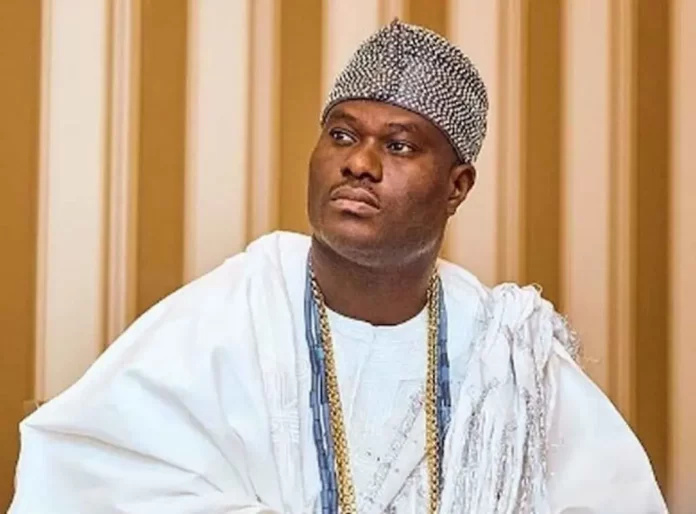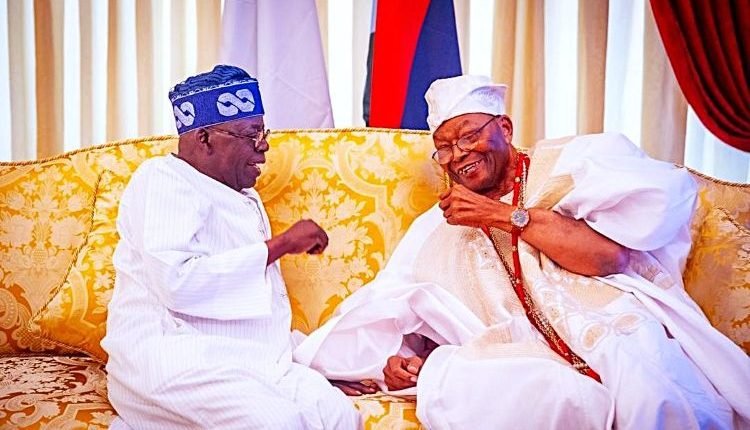The Yoruba highest traditional ruler, Oba Adeyeye Enitan Ogunwusi – Ooni of Ife, is a prominent Nigerian monarch who came to the throne as the 51st Ooni of Ife in 2015. Known for his efforts in promoting youth empowerment and cultural heritage, Ogunwusi has initiated numerous impactful projects across various sectors. His reign emphasizes blending tradition with modernity, and he has been involved in initiatives spanning healthcare, education, and cultural promotion. Ogunwusi is also noted for his advocacy for unity among diverse Nigerian ethnic groups and his contributions to economic development in the Yoruba region.
Often compared to his predecessor, Oba Okunade Sijuwade II, Oba Ogunwusi addresses criticism over his liberal social engagements and interactions with young Nigerian celebrities. His wife, Aderonke Ogunwusi, spearheads London’s 2024 Africa Fashion Week. The Ooni discussed his upcoming 50th birthday, 50 legacy projects, his personality, what he misses from before his reign, and the shared ancestries of the Yoruba and Igbo ethnic groups.
The Interview
Q You’ll be 50 in October. What are you plans to commemorate?
Ans I have yet to reach my peak, aiming to carve a legacy and impact humanity. Turning 50 goes beyond celebration; it’s about showing 50 projects that span various sectors. I’ve started numerous impactful projects globally over the past nine years as Ooni of Ife. I want to show that one can be on a throne and still be impactful, cutting across races, ethnicities, and religions. This will help people understand who I am beyond their perceptions. I’ve remained focused since ascending the throne.
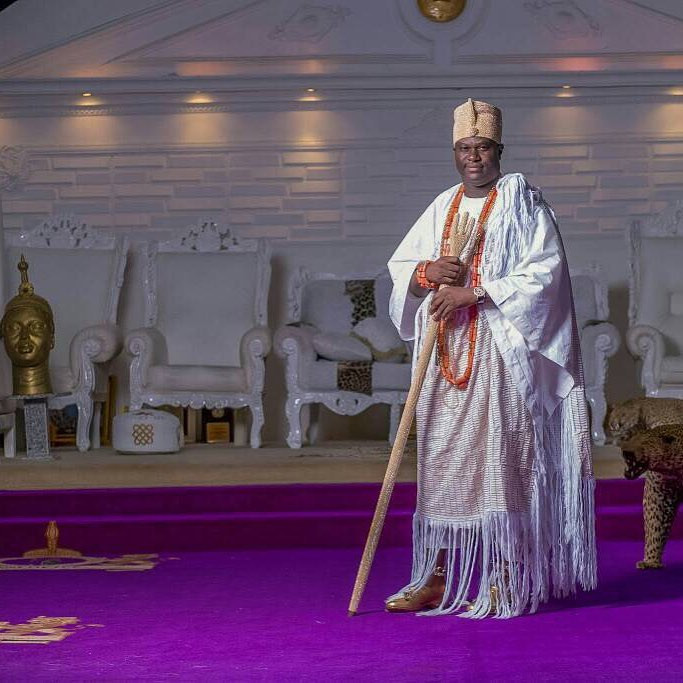
Q You seems deeply interested in the indigenous fashion and textile industry.
Ans One major project I’ve led is revolutionizing the fashion industry and promoting homemade goods, particularly Adire textiles. My queen, Olori Aderonke, is spearheading this program. We established a hub that showcases our country’s potential. Patriotism is important for our nation’s progress. My wife and I co-founded African Fashion Week and have constantly supported it.
Q What endeared you to your wife, Olori Aderonke?
Ans From day one, I knew I had to initiate projects every year, which has strengthened our bond as friends and associates, and now as husband and wife. I’m proud of her work and like surrounding myself with resourceful people. She’s among the best and most incredible minds I’ve seen. African Fashion Week, a powerful brand, was her idea. She is vey passionate about what she does now as a queen and a mother.
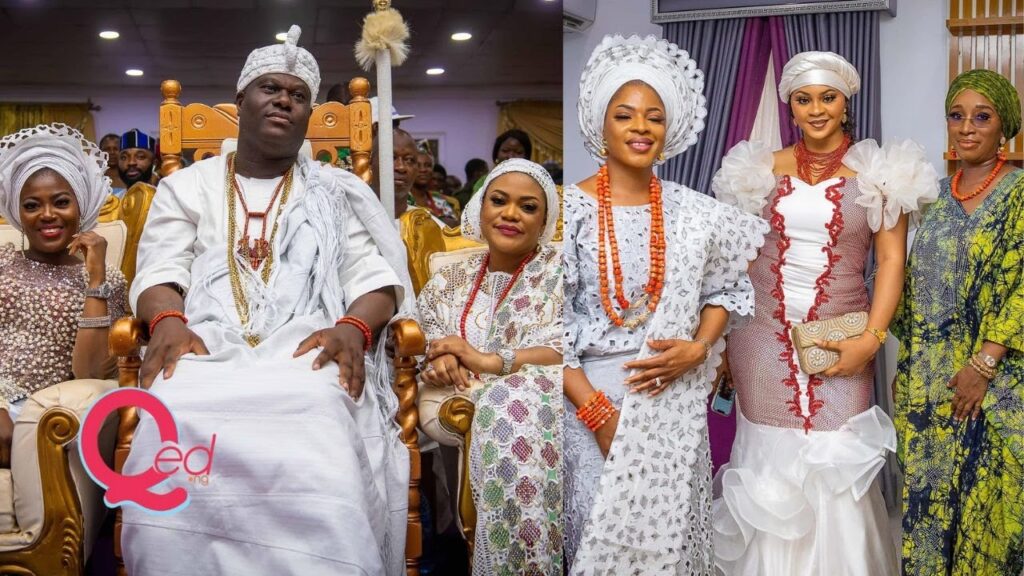
Q Tell us more about the planned activities for your 50th birthday.
Ans I will showcase 50 industries, services, and initiatives that God has helped me pioneer, benefiting millions in health, entertainment, manufacturing, and education. Many people don’t know I established Ojaja University in Ilorin, Kwara State. Additionally, I am developing one of the best healthcare facilities in Nigeria, where medical staff will immediately attend to all emergency cases.
Q Are free services going to be available at the hospital?
Ans In emergencies, patients will be treated immediately. If they can’t afford the medical bills, our foundation or social responsibility organizations will step in, because health is wealth. The hospital has top-notch facilities in Lekki Phase 1, including a dialysis center and obstetrics and gynecology units. This is one of the projects I’ll showcase for my 50th term. These 50 projects are massive but unique, demonstrating that my role goes beyond being a king—it’s a service, and God will continue to guide me.
Q How would you describe your style?
Ans I dress this way due to the call of the throne, which signifies purity, spirituality, clarity, cleanliness, and a solid connection to my spirit. Now, I have also added some refinements and designer clothes. My outfits and regalia are 80 to 90 percent made in Nigeria. I’m a cobbler and still make and design my shoes. I handle everything from choosing the materials to drawing the designs. My outfit is Aso Oke, made in Ilorin, and I know my suppliers. The materials are embroidered in Aba, and my beads, known in Ife for coral beads, are sourced from my community and Benin, Ekiti, and Ibadan.
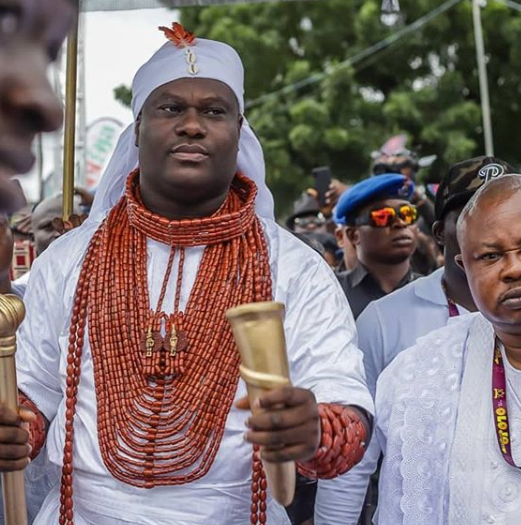
Q Is it true you don’t wear wristwatches?
Ans I don’t wear wristwatches because time belongs to God. Every second counts for me, so there’s no need to check the time constantly. Everything I do is time-bound, making it unnecessary to look at the time.
Q Is there anything you miss fashion-wise, like jeans?
Ans Yes, I miss it a lot. But upholding the spirituality of Yoruba means I can’t be as relaxed with my dressing as some other kings. I don’t have that privilege, but I do miss it.
Q Do you feel 50?
Ans No, I don’t celebrate my birthday traditionally. On this throne, it’s not customary. However, due to my advocacy for youth engagement, I mark the years of my reign.
Q You have been compared to your predecessors and said to be more of a socialite than who an Ooni should be?
Ans I used to be bothered by comparisons, but launching the 50 Projects at 50 will show I don’t have time for such distractions. I stay focused on blending tradition with modernity, which is necessary in today’s world. Social media amplifies everything—good or bad—but I embrace it to advance my vision. Unlike my predecessor in an era without social media, I prioritize my blend of tradition and modernity. Let them talk; I’ll keep building my legacy.
Q Are there any plans to consistently attract people to visit Ife to see the museum and other exciting things?
Ans We advocate for better roads and are thankful the government has completed the Ibadan-Lagos Expressway after almost 20 years. Our next focus is improving the Ibadan to Ife Road. With these improvements, travel times will be so much reduced: from Ife to Lagos in just 2 hours and 15 minutes and from Ibadan to Lagos in 50 minutes to 1 hour, compared to the previous 3 to 5 hours. This development will benefit our citizens.
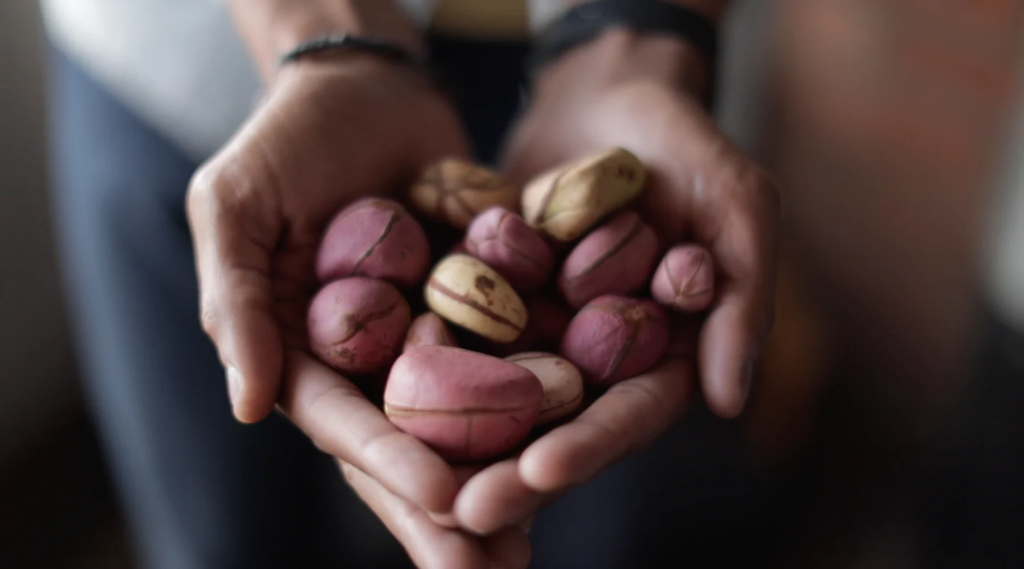
Q How can we harness historical knowledge?
The connection between Yorubas and Igbos, two ancient races, has been much interest to me. Despite controversy, we share a deep historical bond. In my palace, there’s a house of Igbo, pronounced “Igbo.” Where I live is called Ile-Igbo, signifying a new beginning to Yorubas. Igbos may not know this, but they have their meanings. Some claim Jewish descent, but I believe Jews came from Igbos. Kola nuts are vital to Igbos but only grow in Yorubaland. This common link—the kola nut—highlights our shared heritage and spiritual essence.
Q Tell us more about the kola nut analogy.
Ans Let’s explore kola nuts and their significance to the Igbos. They cherish specific types, even go to wars over them, yet kola nuts are not grown in Igbo land—they are sourced from Yoruba land, revealing a historical connection. We were once a united family, with our shared history spreading globally. Teaching history is important.
Establishing a citadel of history, heritage, and culture through connected infrastructure can attract people and improve things. I will not hid this truth but will want to spread the message that what unites us especially the Igbo and Yoruba is more than what divides us.
Please comment and share this article, & Follow us on our social media handles.



